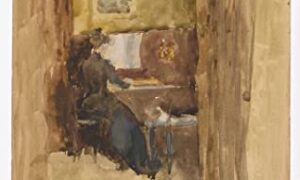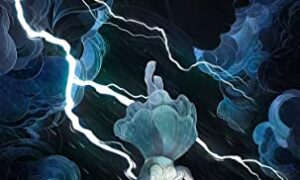 The Sunlight Pilgrims by Jenni Fagan
The Sunlight Pilgrims by Jenni Fagan
My rating: 5/5 cats





this is a gem of an apocalypse story. i’d read this author’s book The Panopticon a few years back, and loved it, but this one is so very different in style and tone, it shows just how much authorial range ms. fagan has. The Panopticon was gritty and harsh, but not without some really lovely bits. this one is slower, more deliberate and insightful, and the lovely languid writing is back and it is tremendously effective in this setting, where the world is slooooowwwwly ending as a new ice age rolls in.
oddly enough, the ice age isn’t really the main focus of the book. it’s more of a backdrop for the characters acting out their lives, and a way of marking time as it gets colder and colder with each subsequent chapter, all the way down to -70 C. the snow and cold and icebergs supply logistical obstacles, but also inspires some gorgeous imagery:
She picks up speed. Faster. Faster. She pedals harder. Air stings hew few inches of bare skin, so it is colder than ice floes on the North Sea – or even right at the bottom of the ocean where the skeletons hold hands or do the jitterbug or bang their fists on a whole roof of ice forming overhead.
if you’re hoping for a realistic portrayal of how the world might end, this ain’t it. this isn’t a book in which people freak out and hoard food and take up religion and panic about their impending dooms. the problems are small, they are our problems: family, death, identity, love…
it all takes place in an isolated scottish caravan park, in a valley surrounded by hills, where dylan – a gigantic and heavily-tattooed, but gentle and thoughtful man, has just arrived to look into selling a caravan left to him in his mother’s will, which he had no idea she’d owned. prior to this, he’d lived his whole life in london, in a crumbling movie house with his beloved mother and grandmother, which they operated together until the two women died and the property was repossessed. grieving and adrift, dylan arrives in the community, stunned by his multiple losses, and his introduction to his new home is the sight of a woman named constance sleepwalking in her front yard, polishing the moon.
constance is a fierce woman, protective of her eleven-year-old daughter stella (who until recently was her son cael), living her life on her own terms despite the gossip of her neighbors. part of the gossip results from her twenty-year-long romantic relationships with two men, on and off, frequently overlapping. one of them, alistair, is stella’s father, who lives up the hill, but refuses to acknowledge stella as she is – occasionally dropping off presents clearly intended for the son he still stubbornly sees her as.
stella is a firecracker of a character – very much like the girls in The Panopticon – spirited, fond of cussing, vivacious and tough, but also vulnerable in her new identity, hurt and resentful by the reactions of those who knew her only as cael, including the nuns at her school, and her best friend lewis, whose friendship has just gotten considerably more complicated. but she’s not broken-down by others; she maintains her sass and spirit:
They took her into a meeting in school and she had to say in advance that she wasn’t a lesbian, or they wouldn’t have let her even try to use the girls’ changing room. They asked her if she was still a Christian. She explained that her family is not religious. They asked her what she knew of damnation. She asked them what they knew of autonomy. They asked her how she knew that word. She asked if they had met her mother. They said they would pray for her. She said it was not necessary. They asked if she might feel different in a few months, or if perhaps she should simply change for gym in the janitor’s cupboard. She said she’d felt like this her whole life and no amount of praying was going to change it and she could use the janitor’s cupboard to change, but she was a person, not a broom.
she adores her unconventional mother and their life together, This sums up my entire childhood: clever shit and apocalypse-survival skills, and she immediately befriends her new neighbor dylan, casting him in the role of pal and casual father figure.
the book is told from the perspectives of dylan and stella both, and we are not privy to the innerworkings of constance’s mind. we only see her as they see her, which is an absolutely genius move on fagan’s part. there is something so powerfully enigmatic and ‘other’ about constance – she is so attuned to her surroundings, and it’s infinitely more mysterious to not know what she’s thinking or feeling or planning. she remains a cipher, smart and strong and odd and independent, and it’s so much more effective to never visit her interiors, just that she accepts stella while still mourning cael, and she teaches stella about life and duality in her own remarkable way: There is a half-female, half-male cardinal bird that is pure white down one side and bright red down the other! Google it.
it’s just … beautiful. i don’t know what else to say. it’s lovely and magical and surprising, and both the characters and the language are phenomenal:
If the doctor asks her what she is most – she will tell him she is a wolf child.
Her mother is winter.
Their neighbor is the child of Nephilim.
Her biological male donor is a future bone teapot.
which sounds kooky, but is completely appropriate in context and is probably my favorite passage in the book.
i will say that the opening; the italicized prologue, is completely baffling at first, but plow through it and be rewarded because it will all make sense later, i promise.
it’s a perfect mishmash of coming-of-age/coming-into-gender-identity story, with tentative romance elements, family secrets, the strength of community in facing the inevitable, with vivid descriptions and a perfectly understated ending.
you know, one of those books.
***********************************************
i don’t even know if i’m qualified to review this one. what she has done here in under 300 pages is more accomplished than i can even unravel.
it’s damn good.
i’ll try to make this review have better words soon.







